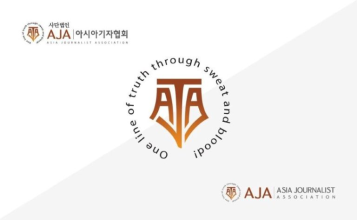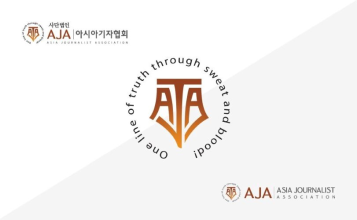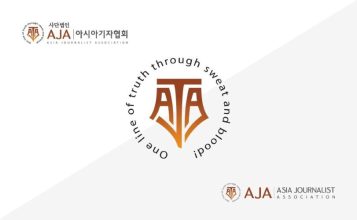AJA Newsbites – November 20, 2025

AJA Newsbites is a curated roundup of major news and developments from across Asia, brought to you by members of Asia Journalist Association (AJA)
Lee Sang-ki, THE AsiaN, Korea
Public support for physician-assisted dying has surged in Korea, with a recent survey showing 82% approval, despite concerns that many respondents may not fully understand the terminology. Experts note that this sharp rise reflects the country’s inadequate hospice and palliative care systems, where patients face long waiting lists, strict limits on length of stay, and insufficient pain management. These conditions intensify fears of enduring extreme suffering at the end of life, leading more people to view assisted dying as a humane alternative.
Personal testimonies from families who have witnessed unbearable pain, along with the visibility of overseas cases such as those in Switzerland, have further shaped public sentiment. Increasingly, medical experts who once viewed the issue as premature now argue that it should be openly discussed. The debate over dignity, ethics, and the state’s responsibility in end-of-life care is entering a critical phase.
Chhay Sophal, Cambodia News Online, Cambodia
Cambodia earned more than US$502 million from bicycle exports in the first 10 months of 2025, marking an increase of over 47%.
According to a report from the Ministry of Commerce released on Tuesday, the Kingdom exported bicycles worth US$502.85 million to partner nations—up 47.66% compared to the same period in 2024, when exports totaled US$340.55 million. The main markets are the United States, Germany, Belgium, England, and the Netherlands, while Cambodia itself imports bicycles from Japan, China, Vietnam, Thailand, and the United States, among others.
The report noted that the European Union has permitted Cambodia to use raw materials or bicycle components originating from neighboring Vietnam to produce bicycles in the Special Economic Zone in Bavet City, Svay Rieng Province, near the Vietnamese border. This permission has facilitated Cambodia’s bicycle export market by enabling easier access to raw materials from Vietnam.
Bhanu Ranjan Chakraborty, Asia Journalist Association, Bangladesh
A special vaccination program has been completed across the country to prevent typhoid disease among children in Bangladesh. From October 12 to November 9, about 35 million children aged 9 months to 15 years received the typhoid conjugate vaccine (TCV), which accounts for about 70 percent of the total target. This information comes from the Expanded Program on Immunization (EPI).
According to the latest report (conducted in 2024) by the Department of Health, 98,243 patients were admitted to government hospitals last year due to typhoid. This means that an average of 269 people received treatment in hospitals each day.
Health experts noted that the rate of typhoid infection is currently increasing among all age groups, including children and adolescents. If symptoms such as prolonged fever, headache, stomach pain, and diarrhea occur, typhoid can lead to serious complications if not treated promptly. They added that the disease can be caused by contaminated water, unhygienic food, and poor sanitation.
Leo Nirsha Darshan, Express Newspapers, Sri Lanka
Prime Minister Dr. Harini Amarasuriya stated in Colombo that education has the power to unite people politically, socially, and economically, emphasizing that its core purpose should be the sharing of collective knowledge.
She addressed a conference aimed at fostering cooperation across Asia, the Middle East, and the Pacific on education’s role in the Green Transition, and highlighted the Erasmus+ Programme, an EU-funded initiative that promotes international mobility and capacity building.
The Prime Minister acknowledged Sri Lanka’s high literacy rate since the post-colonial era, but criticized the current system for having become excessively focused on individual success and intense exam-oriented competition. Dr. Amarasuriya stressed the urgent need for reforms to move away from this model toward transformative learning, mutual success, and collaboration. She noted that new initiatives will encourage collective learning and a stronger sense of responsibility toward the environment.
She concluded that meeting the challenge of transforming the system from a “cage of competition into a free space of collaboration” is essential for Sri Lanka’s future.
Pooneh Nedai, Shokaran Magazine, Iran
President Donald Trump claimed that the United States had “removed the dark cloud of Iran” from Saudi Arabia, portraying Iran as a major threat with nuclear capabilities. He asserted that Iran now “wants to make a deal” and insisted that his administration had swiftly and forcefully dismantled Iran’s nuclear abilities. Trump reiterated that reaching a new agreement with Iran was possible, suggesting that Tehran was seeking negotiations. He used these statements to emphasize his administration’s strength against Iran and to highlight what he described as a major geopolitical achievement for both Saudi Arabia and the United States.
ⓒ THE AsiaN | All rights reserved
This content is copyrighted by THE AsiaN. If you wish to share it, please do so without modifying the original text and always include the source link. Unauthorized editing or sharing without proper attribution may result in legal consequences.




